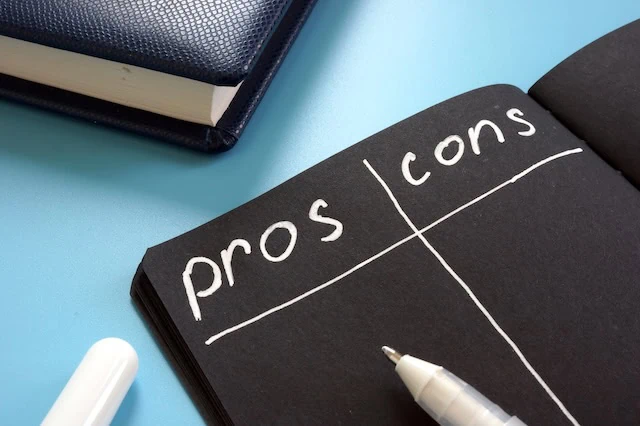We don’t always make the retirement investment decisions we should, and many times, there’s no way to change the past—all we can do is try to do better going forward.
But if you’ve been saving money in a tax-deferred retirement account like a traditional IRA or 401(k) and eventually realize you should’ve been socking some of those funds away in a tax-exempt Roth account? Lucky you: A Roth conversion can help you rectify your mistake.
A Roth conversion, in brief, allows investors to move their money from a tax-deferred account to a tax-exempt one. It has a number of benefits and drawbacks that we’ll get into in a moment, but generally speaking, they can be useful—to certain people. And age is an important factor in determining whether a Roth conversion can be useful to you.
But can you be too old for a Roth conversion? Do the benefits vary depending on your age? Today, I’ll walk you through the pros and cons of Roth conversions for different age groups.
The information presented in this article does not constitute individualized financial advice. The information appearing in this article appears for educational purposes only. Please consult a financial professional for advice tailored to your unique circumstances.
Pros + Cons of a Roth IRA Conversion

If you’re new to the concept, you can learn more about them in our article “What is a Roth Conversion?” But here, let’s quickly review the benefits and drawbacks of a Roth conversion for any age.
The Pros
- Money in Roth accounts (just like with traditional retirement accounts) grows without tax consequences.
- Withdrawals of contributions from a Roth account generally aren’t taxed or penalized. Withdrawals of earnings from a Roth account aren’t taxed provided you’re at least 59½ and have met the five-year rule.
- Roth account funds aren’t subject to required minimum distributions (RMDs).
- Splitting your money between traditional and Roth accounts gives you more tax flexibility on withdrawals once you retire.
The Cons
- You face significant tax implications during the year(s) of conversion.
- You can’t withdraw converted money (neither contributions nor earnings) for five years.
- You can’t undo a Roth conversion.
The Best + Worst Ages for a Roth Conversion

In addition to the above pros and cons, the calculus around Roth conversions changes as you grow in age.
Let me show you what you’ll want to consider if you mull a Roth conversion during different periods of your life. I’ll look at 10-year frames from your 20s through your 60s, as well as age 70 and above.
Ages 20 to 29

All else equal, the younger you are when you do a Roth conversion, the better.
For instance, when you’re in your 20s, you …
- Have ample time to grow a pot of money they can generally expect won’t be taxed upon withdrawal in retirement.
- Are likely making less than you will for the rest of your life, which means you’ll be in a lower tax bracket now compared to when you’re older.
- Probably don’t have a substantial sum saved up for retirement as it is. That, combined with the first point, means you probably would face a relatively digestible tax hit. (If nothing else, your conversion taxes likely would be significantly lighter than they would be later in life.)
Of course, it’s also likely that you won’t earn enough in a year to exceed the Roth IRA income cutoff during your 20s, so you could just start contributing to a Roth IRA.
Related: What Is a Roth Conversion? [A Tax-Smart Retirement Strategy]
Ages 30 to 39

Despite what social media and a possibly creaking body may tell you, your 30s are still considered young—at least from a financial standpoint.
All of the same reasons a Roth conversion could be appealing in your 20s hold true for your 30s—albeit it possibly to a lesser extent. For many reasons (extended schooling for a career, or switching fields, for instance), many people still don’t have substantial account values in their 30s, so a conversion might not result in an insurmountable tax bill. And as you’re still likely several decades away from retirement, you have a lot of time to build up that tax-exempt pot.
But again, you also might be in a position where you can start contributing to a Roth account, in which case a Roth conversion might be a moot point.
Related: What Is a Backdoor Roth Conversion? [Retirement Strategy for High-Earners]
Ages 40 to 49

In your 40s, the green light for a Roth conversion starts to turn yellow. It might still be a worthwhile financial move, but you should give it some serious consideration.
You might or might not be in a higher tax bracket than you anticipate being in during retirement—in other words, the taxes you pay now might be higher than they would be if you withdrew the same funds from a traditional 401(k) or IRA during retirement. Additionally, you might have accumulated a nice sum in your account, meaning conversion taxes could be more onerous.
But before you slam on the brakes, understand that you could use a different strategy when initiating a Roth conversion.
A Roth IRA conversion ladder involves executing the conversion across small increments over multiple years, which helps you avoid a hefty one-time tax bill. Ideally, you would convert just enough in pre-tax funds each year so as not to cross over into the next, higher tax bracket. (A financial advisor can tell you whether a Roth IRA conversion ladder makes sense for you, as well as plan one out and help you do it.)
Workers in their 40s have often deferred a large amount of taxable earnings through traditional retirement accounts. Knowing that they’ll pay taxes on most of that money upon withdrawal can motivate people to start diversifying their tax treatment.
Related: What’s the Best Tax Bracket for a Roth IRA Conversion?
Ages 50 to 59

Many people are at the peak of their careers in their 50s. While a few people begin to ease into retirement at these ages, most are earning more now than they have (or will) at any other point in their lives.
If this sounds like you, you’re likely in a higher tax bracket than you will be in retirement, and chances are you have a hefty nest egg to boot. Thus, a Roth conversion could result in a particularly onerous tax bill.
However, there are still situations where a conversion could still make sense. As previously mentioned, a Roth conversion can diversify your tax treatment, so if all of your retirement funds are currently in tax-deferred accounts, it might be worth converting some.
The state of the markets is a consideration here, too. If your account value was suddenly temporarily lower because of a bear market, you would pay less tax overall than you would if your account value had remained stable. So you could pull off a Roth conversion during a downturn, take less of a tax hit, and still enjoy the same tax-free growth within the Roth as the market recovers.
In short: While Roth conversions can be painful in your 50s, there are some circumstances in which you would still be better off, and even a few in which you can reduce that pain.
Related: How to Choose a Financial Advisor
Ages 60 to 69

The drawbacks of going through with a Roth conversion in your 60s generally outweigh the benefits (especially if you’re retired), but again, don’t rule the idea out.
An important consideration in your 60s is whether a Roth conversion would increase your Medicare premiums. You have to report income from a Roth conversion on your federal tax return for the year. Well, people on Medicare with a modified gross adjusted income (MAGI) over a certain threshold pay a monthly surcharge for Part B and Part D on top of their regular monthly premiums. That means anyone on Medicare (or planning to enroll soon) should do the math to see whether a conversion would increase their premiums. Spacing out conversions across multiple years could solve this potential issue, but it’s still a deterrent against having a conversion at this age.
Additionally, when you’re in your 60s, you’ve crossed the 59½ age threshold to begin withdrawing from retirement accounts without an early withdrawal penalty. But remember: After a Roth conversion, you can’t touch any converted funds for five years—so if you’re retiring soon and plan to make withdrawals, you wouldn’t want to convert any amount you plan to withdraw soon.
That said, by your 60s, you should have a good idea of what your retirement finances will look like. If you have enough savings to last your entire retirement and still leave a substantial nest egg for your heirs, a Roth conversion is worth considering. Roth accounts don’t have RMDs, so you could let your converted account continue to grow until the day you pass, then leave your Roth IRA to your heirs.
If a person has a traditional IRA, dies on or after their required beginning date (RBD, the date at which RMDs must begin), and passes their IRA to their beneficiaries, those heirs generally must take annual RMDs and liquidate the account by the end of the 10th year following the year of death. However, with an inherited Roth IRA, only the 10-year rule applies—the original Roth IRA owner wouldn’t have RMDs (and thus no RBD), so their heirs would not be required to take annual RMDs. And as long as they follow IRS distributions, they should be able to withdraw that money tax-free.
Related: How Long Will My Savings Last in Retirement? 4 Withdrawal Strategies
Age 70+

Roth IRA conversions have no age limits, so if you want to do one in your 70s, it’s perfectly legal.
But it’s rarely a great strategy.
Your converted funds don’t have nearly as long to grow as they did when you were younger. Retirees, who largely live on fixed incomes, certainly don’t appreciate the tax hit. In fact, it’s possible that you could end up losing more in taxes and opportunity cost than what you would end up saving through the eventual tax-free withdrawal.
Also, if you regularly donate to charity, a Roth conversion could limit your ability to take advantage of a specific tax break. Traditional IRA owners age 70½ or older may be eligible to make qualified charitable distributions (QCDs). Through QCDs, qualifying older adults can transfer money tax-free up to the annual limit each year. For 2025, the limit is $108,000. (If you’re married, each individual can contribute up to their individual limit.) Plus, these transfers also count toward one’s required minimum distributions for the year, which blunts the need for a Roth IRA to avoid RMDs.
And of course, you can’t touch converted funds for five years—an even larger gamble for some retirees when they’re in their 70s and older.
However, as I discussed earlier, if you have far more money than you’ll ever need, a Roth IRA conversion could be a kind gift to your beneficiaries.
Want to talk more about your financial goals or concerns? Our services include comprehensive financial planning, investment management, estate planning, taxes, and more! Schedule a call with Riley to discuss what you need, and what we can do for you.







![How Much to Save for Retirement by Age Group [Get on Track] 21 how much to save for retirement by age group](https://youngandtheinvested.com/wp-content/uploads/how-much-to-save-for-retirement-by-age-group-600x403.webp)

